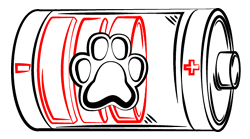
Paws ‘N’ Pups Quickview
Size
| Energy Level
| Trainability
| Paws ‘N’ Pups Rank
|
Characteristics
| Physical Characteristics: Height: 15-32” Weight: 85-100 lbs. Energy Level: Very High | Colors: The Pyredoodle is found in the following colors:
|
Health & Longevity
Average Life Span: 10-12 years
The Pyredoodle is a hybrid breed of the Great Pyrenees and the Poodle. As with any mixed breed, it is important that you work with a reputable breeder to weed out some of the major health conditions that can be passed down to the puppies.
When it comes to the diseases that a puppy may have, we must take a look at both of the parent’s breeds to determine the possible conditions. The Pyredoodle has both major and secondary health concerns, which include Addison’s Disease, Cushing’s Disease, bloat, patellar luxation, epilepsy, Von Willebrand’s Disease, Legg-Perth’s Disease, hypothyroidism, anesthesia sensitivity, and eye problems.
Addison’s Disease is commonly found in the Pyredoodle breed and happens when there are not enough corticosteroids released into the body. When this occurs, the body is unable to function correctly. Addison’s Disease affects the adrenal gland and usually occurs due to poor functioning of the gland.
Cushing’s Disease does not typically occur in puppies and is most commonly seen in older or senior dogs. The Pyredoodle can suffer from this disease and it occurs when there are low cortisone levels within your pet. The problem with this disease is that it can be difficult to identify since the symptoms are common symptoms that occur with a variety of conditions.
Bloat often occurs in larger dogs and can be a fatal condition if it is not caught and handled in time. The condition occurs when a dog swallows too much air or too much air becomes trapped within their stomach. This causes the stomach to swell and places a lot of pressure on the organs around it.
Patellar luxation is another common condition that can occur and is more often seen in females than in males. The condition is a knee dislocation. It can occur in your Pyredoodle and you will usually know because your pup will hold his or her leg up and may experience weakness in the injured limb.
Seizures, also known as epilepsy, can happen and it is therefore something that you should watch out for. You will likely not see any signs of epilepsy until your Pyredoodle is about two years old. Often times, the seizures are mild, but they can be violent with a lot of convulsions and foaming at the mouth. This condition may require that your pet be placed on medication to prevent further occurrences.
Von Willebrand’s Disease is one that is inherited and may be found in your Pyredoodle. This disease affects the platelets in your dog’s body and prevents them from clotting. The reason the platelets cannot clot is due to a lack of proteins.
Legg-Calve-Perthe’s Disease occurs when the head of the femur bone in your Pyredoodle degenerates. This causes a lot of inflammation and pain.
You may notice that your Pyredoodle suffers from hypothyroidism and this condition occurs when there is an issue with the thyroid gland in your puppy. This condition can cause your pup to have trouble gaining weight or may lead to obesity.
Anesthesia sensitivity is something that you need to be worried about with your Pyredoodle. It is important to talk to your vet because your puppy may react differently when placed under anesthesia. While this condition is often mild, it can be fatal if not handled correctly.
Lastly, you need to make sure be mindful of your Pyredoodle’s eyes as he or she can develop eye problems from infection to cataracts.
The Pyredoodle’s life expectancy is 10 to 12 years.
Temperament & Train-ability
The Pyredoodle is often described as a dog that loves to be around people, a wonderful family dog, and a playful pup. This breed is often known to protect and guard his or her family, but do not expect him or her to be protective.
Your Pyredoodle is going to be full of life and playful. He or she will need some mental and physical stimulation to burn off this energy or they may become destructive within your home. If your pup inherits more of the Great Pyrenees genes, you may find that your puppy is a bit lazier than other breeds.
This breed is intelligent and can get into trouble when allowed to. You will find that this breed can be quite stubborn when it comes to training, but it is not impossible to train them. You do need to make sure that you assert yourself as the pack leader to ensure there is no misunderstanding.
The Pyredoodle is great with children and other animals, especially if raised with them from a young age. You will find that you need to be consistent with training and firm when it comes to the commands you give.
While this breed is independent most of the time, you will find that they love to be around you and your family.
Grooming
Your Pyredoodle’s grooming needs will vary depending on which type of coat they inherit from their parents. If your Pyredoodle has the coat of a Poodle, you will need to take him or her to the groomers every couple of months to be trimmed.
If your puppy inherits the coat of a Great Pyrenees, then you will find that he or she sheds quite a bit and needs to be brushed daily to prevent mats and tangles.
No matter the coat, your puppy does not need to receive a regular bath. In fact, he or she only needs one when dirty or stinky. The Great Pyrenees’ coat is silky, smooth, and often reflects dirt to keep the coat clean.
You need to clean your puppy’s ears once a week to ensure there is no buildup of wax or dirt. Lastly, always trim his or nails to ensure they do not get too long.
Diet
Your Pyredoodle will eat between four and five cups of dry food per day. You need to make sure that the food is of high quality and is not made with chemicals or by-products.
When you shop for dry food, look for ingredients such as rice, chicken, and vegetables. You should avoid any products that do not offer any nutritional value to your pup either.
Looking for a Pyredoodle?
 Find A Pyredoodle Breeder |  Pyredoodle Puppies For Sale |  Adopt A Pyredoodle |
Cost
A Pyredoodle puppy will run you anywhere from $600 to $2,500 depending on the breeder you choose. In addition to the cost of your puppy, you need to factor in the costs of vaccines, vet checkups, and pet supplies.
Paws ‘N’ Pups Ranking
Paws ‘N’ Pups ranks every breed out of 4 with 1 being easiest to integrate into your life and 4 being the toughest – The lower the ranking the better.
Ranking takes into account a few basic factors including cost, skill level needed, high vs low maintenance and how critical regular training is to success. The Pyredoodle is a wonderful breed for all types of families and is excellent with children. You will find that your new puppy does require a bit of grooming, but he or she is fairly easy to train. This breed ranks a 2.
Breeds Similar To Pyredoodle
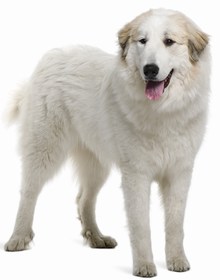 Great Pyrenees | 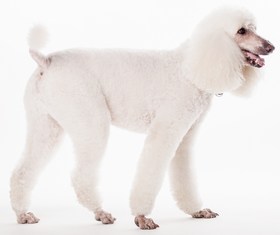 Poodle | 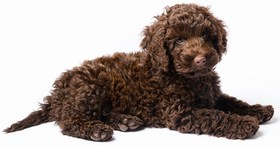 Labradoodle | 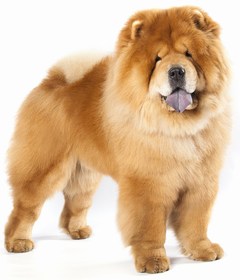 Chow Chow |


